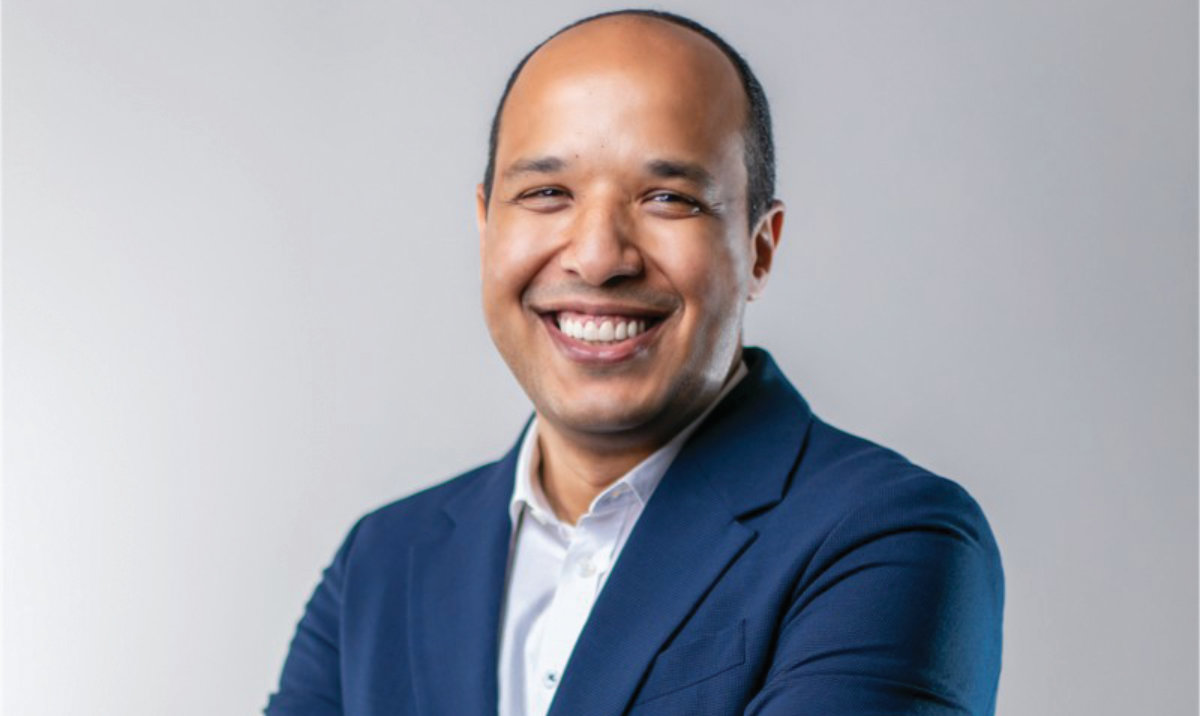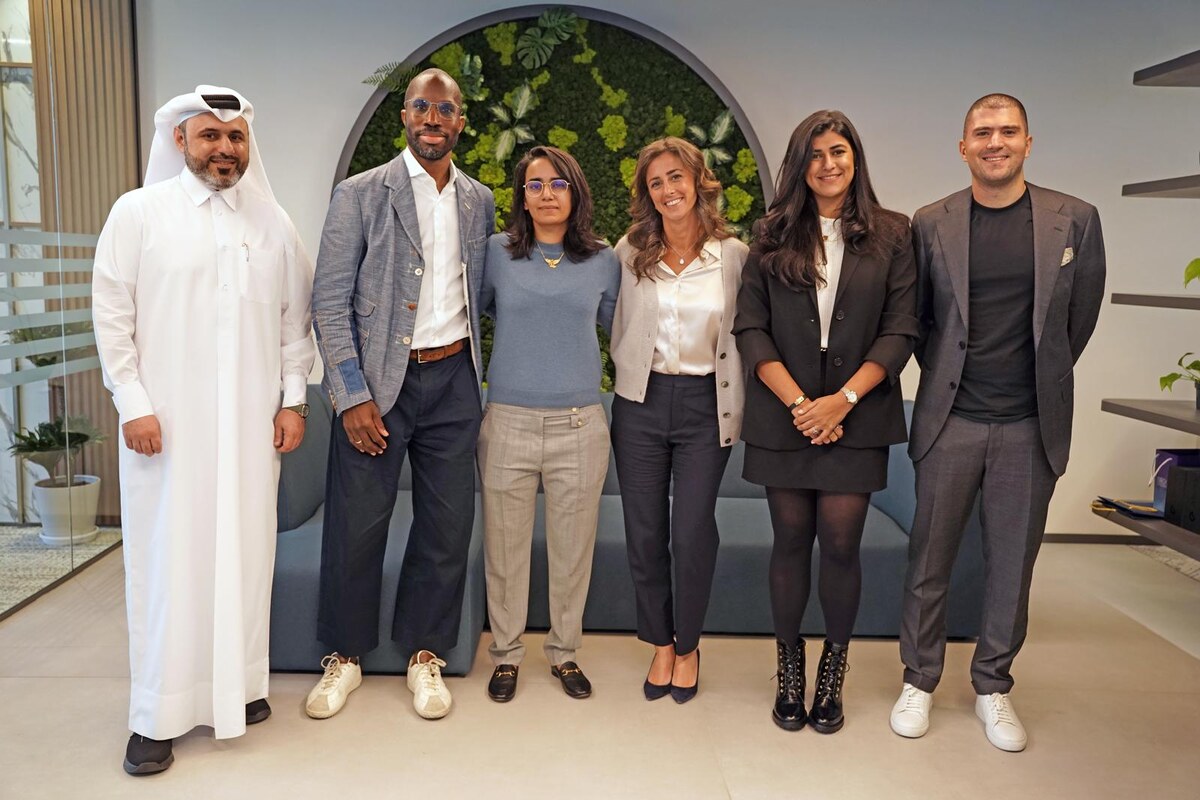RIYADH: With an average growth rate of 4 percent over the past seven years and an upward trajectory buoyed by a pro-business environment, Saudi Arabia has demonstrated remarkable resilience amid global economic challenges.
Given its strategic location, robust economy, and ambitious Vision 2030, it’s hardly surprising that the Kingdom stands as a beacon of progress and growth in the region.
A key to this has been attracting foreign direct investment, as well as working on agreements with neighboring countries to ensure Saudi Arabia is seen as being open for business.
Economist and policy adviser Mahmoud Khairy told Arab News that the Kingdom has “enhanced trade relations and reduced barriers” in this regard as it seeks to put its Vision 2030 strategy into action.
That plan aims to reduce the nation’s dependence on oil, diversify its economy, and build a vibrant society.
Khairy added: “The Kingdom has already started to take serious steps to capitalize on its exceptional location through the establishment of logistics and free trade zones, coupled with efforts to diversify the economy under Vision 2030, attracts foreign investment and fosters trade partnerships.”
Khairy emphasized that investments in digital infrastructure and e-commerce platforms have further modernized the Kingdom’s trade ecosystem, enhancing its connectivity with global markets.
Furthermore, he said, tremendous efforts have been made to advance the financial ecosystem, with new measures planned to improve the ease of doing business and develop the investment environment further.
Khairy’s analysis was echoed by Saudi-based economist Talat Hafiz, who told Arab News: “One of the main pillars of Saudi Vision 2030 is to create a business environment that supports economic growth in the Kingdom and attract FDI as well as diversify the Kingdom’s economy. The only way to reach such a goal is through facilitating doing business and trade.”
Gateway to global trade
Situated at the crossroads of Europe, Asia, and Africa, Saudi Arabia boasts a strategic geographical location that makes it a natural hub for international trade, giving it a unique advantage when it comes to Asia-Europe commerce channels and distributing goods through the Arabian Peninsula.
With access to over 424 million consumers within a three-hour flight radius, the nation serves as an efficient gateway to markets spanning three continents.
The Saudi freight and logistics industry, supported by state-led investments in infrastructure, is a vital component of the Kingdom’s economic landscape.
Saudi Arabia has undertaken extensive expansion and modernization efforts at its ports, such as the King Abdulaziz Port in Dammam and the King Abdullah Port in Jeddah, incorporating cutting-edge technology for efficient cargo handling.
Khairy said that the development of such modern ports “increases the country’s capacity to handle large volumes of cargo, thereby improving efficiency and reducing transit times for goods entering and leaving the region.”

When compared to many Western countries, Saudi Arabia’s corporate tax rates are notably lower, with certain industries and regions even benefiting from tax exemptions or reduced rates.
Mahmoud Khairy, Economist and policy adviser
Hafiz added: “With a combined total of 290 berths, Saudi Arabia’s ports comprise the Middle East’s largest seaport network that not only contributes a great deal to national growth but also showcases the Kingdom’s formidable regional and international standing.”
He went on to emphasize that the country’s ports are capable of accommodating any form of vessel, which is what drove the Saudi Port Authority, also known as Mawani, to provide specialized terminals for various types of loads.
Furthermore, substantial investments are being made in expanding rail and road networks to enhance connectivity and streamline the transportation of goods domestically.
According to Khairy, the expansion and improvement of transportation networks, including roads, railways, and airports, enhance connectivity both domestically and internationally.
“This seamless connectivity facilitates the movement of goods and people, supporting supply chain efficiency and enabling businesses to access global markets more effectively,” he added.
Saudi Arabia’s well-established logistics infrastructure offers unparalleled opportunities for logistics companies and manufacturers looking to capitalize on its strategic advantages.
Business-friendly environment
The Kingdom offers a business-friendly environment characterized by stable economic policies, government incentives, and a youthful, tech-savvy population.
Hafiz noted that Saudi Arabia “jumped significant places in the World Bank’s Ease of Doing Business index and IMD, making the Kingdom among the world’s top improvers.”
Ease of Doing Business index ranked economies from 1 to 190, with the Kingdom standing at number 62 in the final report issued in 2020.
Saudi Arabia ranked 30 in 2023’s IMD World Digital Competitiveness Ranking, which assesses the capacity and readiness of an economy to adopt and explore digital technologies as a key driver for economic transformation in business, government, and wider society.
The government, through Saudi Arabia’s General Investment Authority, also known as SAGIA, offers various incentives to attract foreign investors. These incentives comprise low corporate tax rates, streamlined business regulations, and robust infrastructure development.
“When compared to many Western countries, Saudi Arabia’s corporate tax rates are notably lower, with certain industries and regions even benefiting from tax exemptions or reduced rates,” Khairy pointed out.
He went on to say that “the digitalization of bureaucratic processes makes it easier for investors to navigate the business environment and set up operations in the country.”
The incentives play a significant role in investor decisions by enhancing the attractiveness of Saudi Arabia as an investment destination.
Businesses are drawn to markets with favorable tax regimes and simplified regulatory frameworks, as they contribute to higher profitability and operational efficiency, according to Khairy.
Hafiz added: “These developments, which are aligned with Saudi Arabia’s Vision 2030, will hopefully increase FDI’s contribution to the Kingdom’s gross domestic product from 3.8 percent in 2016 to 5.7 percent by 2030.”
With this, Saudi Arabia presents lucrative opportunities for foreign investors and entrepreneurs seeking to establish their presence in the region.
Furthermore, initiatives such as the establishment of special economic zones and the growth of the venture capital sector underscore the country’s commitment to fostering innovation and entrepreneurship.
The VC sector has over 80 active firms, with more entering the market, highlighting the commitment to nurturing innovative startups.
Adding to this, the continuous infrastructure development initiatives like NEOM and Red Sea Global underscore the dedication to establishing top-tier business environments and fostering opportunities across diverse industries.
Over 200 international firms, including Northern Trust, PepsiCo from the US, IHG Hotels and Resorts, PwC, and Deloitte from the UK, have opened their regional headquarters in Riyadh.
The Kingdom had previously announced that it would not award any deals to any foreign company or commercial entity with a Middle Eastern base outside Saudi Arabia starting from January 1, 2024.
Driving innovation through technology
Embracing the transformative power of artificial intelligence and machine learning, Saudi Arabia is spearheading initiatives to harness these technologies for economic growth.
Under the leadership of Crown Prince Mohammed bin Salman, the nation is investing in AI research, education, and infrastructure to propel its industries into the digital age.
According to Khairy, collaboration between academia, industry, and government can harness AI’s potential to enhance productivity and competitiveness across sectors.
AI adoption can lead to new products, services, and business models, optimizing operations and decision-making, he explained.
Generative AI, a cutting-edge technology, holds immense potential for revolutionizing supply chain and procurement operations in Saudi Arabia.
The National Strategy for Data and AI, initiated in 2019, outlines the country’s commitment to advancing AI capabilities and data-driven decision-making.
Generative AI, powered by large language models like OpenAI’s ChatGPT and Google’s BERT, stands out as a transformative technology with the potential to revolutionize supply chain and procurement operations.
Within the context of Vision 2030, generative AI aligns with goals of economic diversification, localization, and sustainability, positioning Saudi Arabia as a key player in international supply chain management.
“The new National Industrial Strategy of the Kingdom not only focuses on raising the number of factories in Saudi Arabia to 36,000 but also improves its technological capabilities,” according to Hafiz.
A visionary path forward
As Saudi Arabia continues its journey towards economic diversification and innovation, it remains poised to emerge as a global leader in business and technology.
“I believe that the sky is the limit when it comes to business opportunities in Saudi Arabia, especially in economic sectors that could add value to the Kingdom’s economy such as advanced technologies: AI, digital economy, internet of things and other sectors, especially advanced renewable energies,” Hafiz said.
Saudi Arabia’s youth population, combined with its dedication to education and technological advancement, positions it as a powerhouse of talent and innovation.
In the era of supply chain diversification, Saudi Arabia has emerged as a compelling rival in the global logistics market. The Kingdom presents an attractive proposition for businesses seeking to optimize their supply chains and expand their global footprint.
As Saudi Arabia continues on its path to becoming a global supply chain hub and a leader in AI and machine learning, it is prioritizing programs that equip its youth with the skills and knowledge required for these transformative job opportunities.
By all accounts, Saudi Arabia can leverage generative AI to not only enhance its supply chain and procurement processes but also empower its youth to thrive in the workforce of the future.
“The technology sector is experiencing rapid growth, driven by government initiatives and increasing investment in areas such as digital transformation and artificial intelligence,” Khairy said.


























